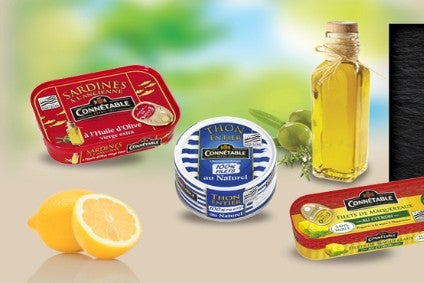
France-based tinned fish specialist Chancerelle, best known for its brand Connétable, is investing EUR4m (US$4.7m) in a second sardine processing plant in Morocco.
Set to open in the next few weeks, the 4,000 square-meter new facility is located in the port of Laâyoune, in the south of France, and will employ around 100 workers.
Brittany-based Chancerelle has been present in Morocco since 2009 where it benefits from an abundance of local sardine stocks and competitive labour costs.

Discover B2B Marketing That Performs
Combine business intelligence and editorial excellence to reach engaged professionals across 36 leading media platforms.
An existing plant in Agadir employs more than 1,000 staff and processes about one-half of Chancerelle’s sardine output.
Speaking in the French press, the company’s CEO, Jean-François Hug, said: “This new site will allow us to process the sardines as soon as the boats berth thus maintaining the cold chain and monitor more quickly their quality.”
His comments were confirmed to just-food by a company spokesperson.
The fish will be cleaned and gutted before being placed in ice and transported from the new facility by truck to the plant in Agadir, which specialises in supplying supermarket private labels and also products for export.
Chancerelle has agreements with around 30 Moroccan trawler owners who it provides with ice aboard their vessels.

US Tariffs are shifting - will you react or anticipate?
Don’t let policy changes catch you off guard. Stay proactive with real-time data and expert analysis.
By GlobalDataThe spokesperson declined to comment on the production capacity of the Moroccan facilities.
The family-owned firm, founded in 1853, also operates two plants in France, one dedicated to sardines and mackerel and the second to tuna and other fish.
The firm posted a 2017 turnover of EUR145m with exports accounting for 15% of the total, the main markets being Africa, North America and French overseas territories.





